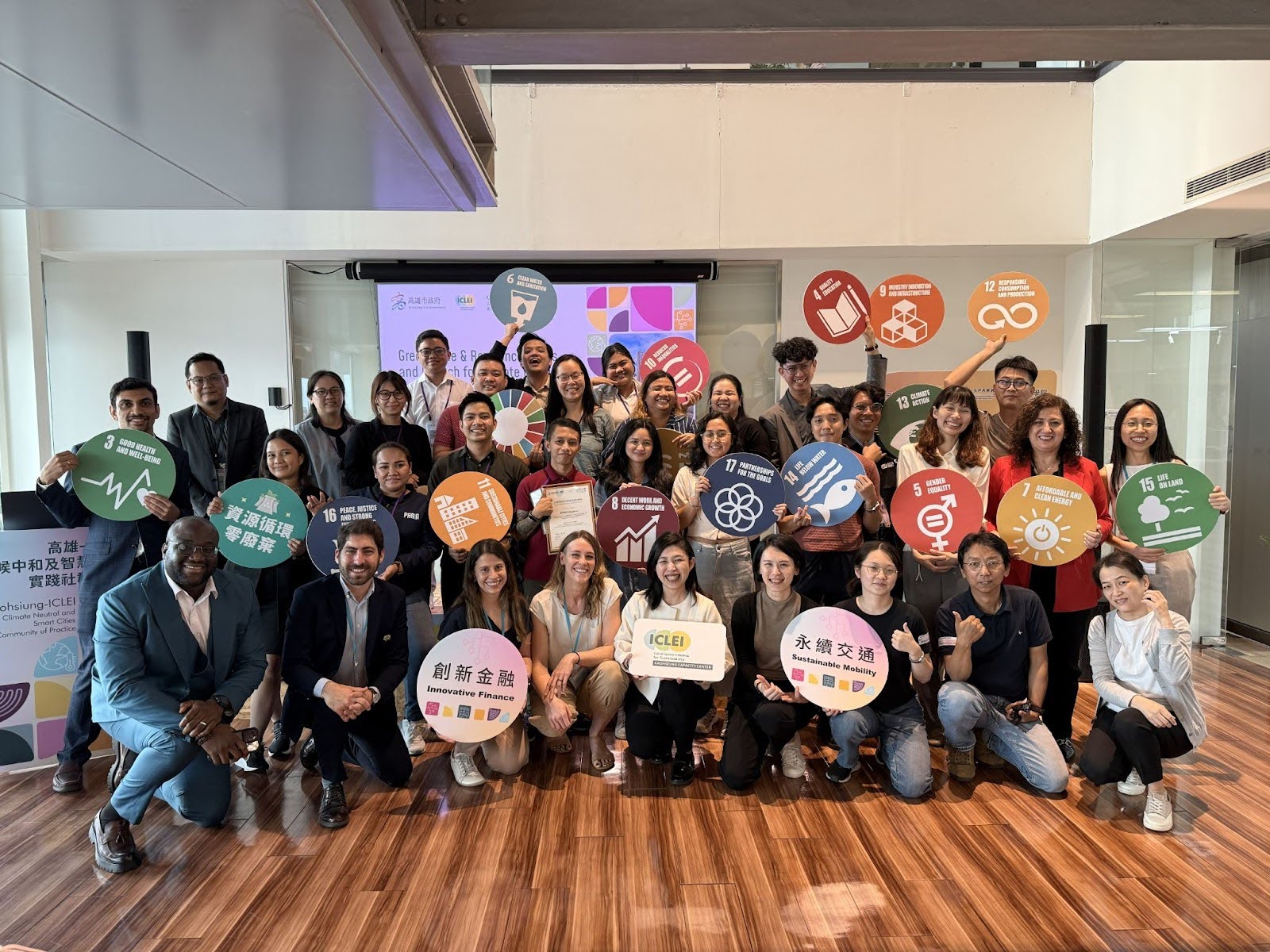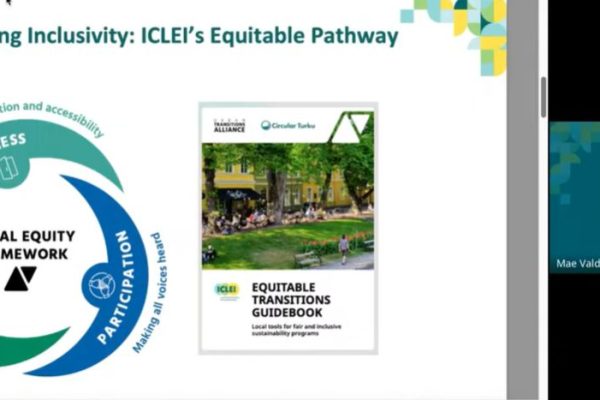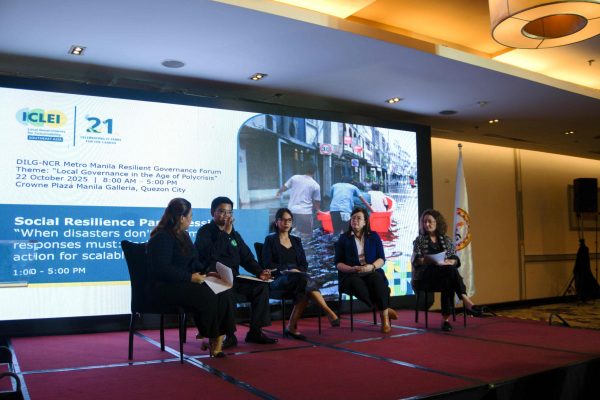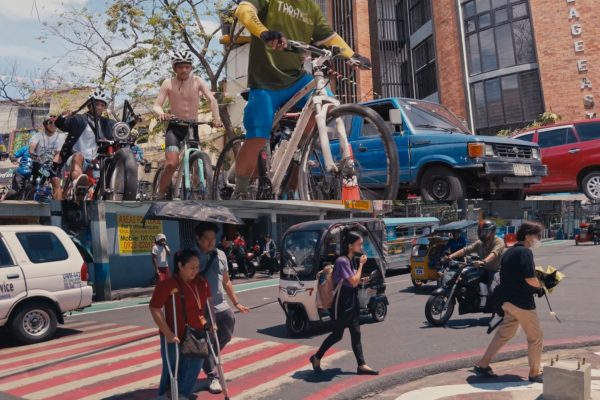Local and national government representatives, experts, and local practitioners on sustainable mobility and innovative finance gathered for a 2-day workshop at the Kaohsiung Net Zero Institute on 22-23 October 2025.
Held through a collaboration among the Kaohsiung City Government, ICLEI Kaohsiung Capacity Center(KCC), the ICLEI World Secretariat (WS), and the SPARK Project implemented by ICLEI Southeast Asia and Institute for Climate and Sustainable Cities (ICSC), the workshop saw participants imagining the future of sustainable mobility with keynote presentations, panel discussions, and scenario-building activities.
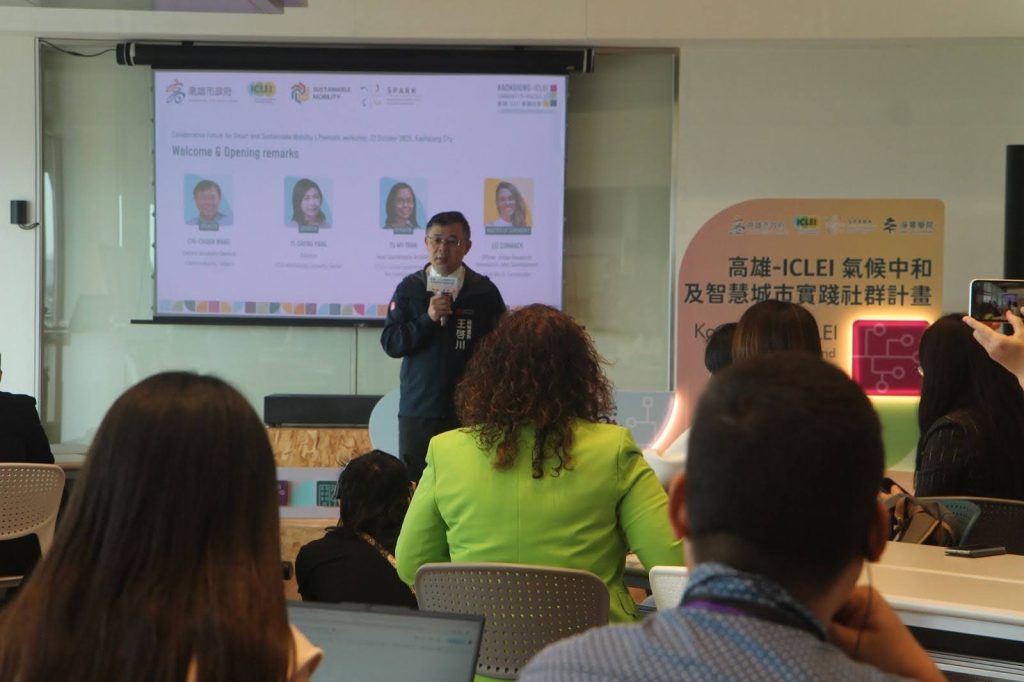
Chi-Chuan Wang, Deputy Secretary General of the Kaohsiung City Government, delivers his welcoming remarks to the workshop participants.
In his opening message, Chi-Chuan Wang, Deputy Secretary General of the Kaohsiung City Government, emphasized the host city’s commitment to achieving climate neutrality. Meanwhile, Yisheng Yang, Director of the ICLEI Kaohsiung Capacity Center, and Tu My Tran, Head of ICLEI Sustainable Mobility, both emphasized the importance of innovative approaches and peer-to-peer learning in achieving sustainable development, particularly on urban mobility.
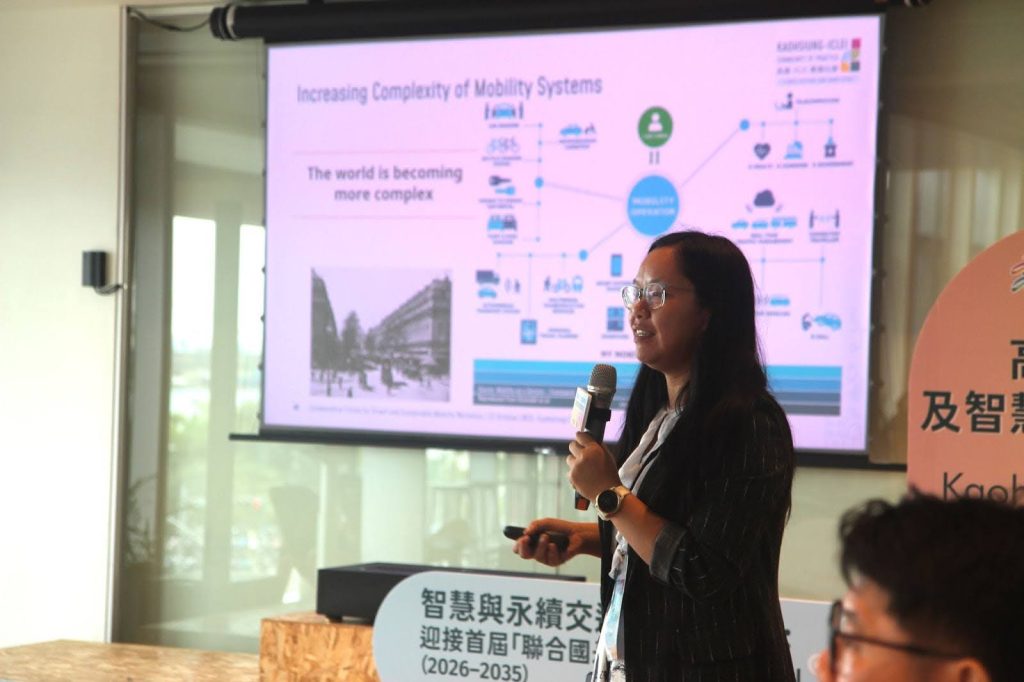
Tu-My Tran, Head of ICLEI Sustainable Mobility, delivers a keynote speech on the future of sustainable urban mobility.
A baseline and intermediate outlook of urban mobility trends and current local efforts were provided by resource speakers Alvin Mejia of the Asian Development Bank (ADB) Asian Transport Observatory (ATO), Casper Hsu of the Kaohsiung City Government, Alice Yiu of the International Road Federation, Allan Saleh de Vera of the Quezon City Planning and Development Department.
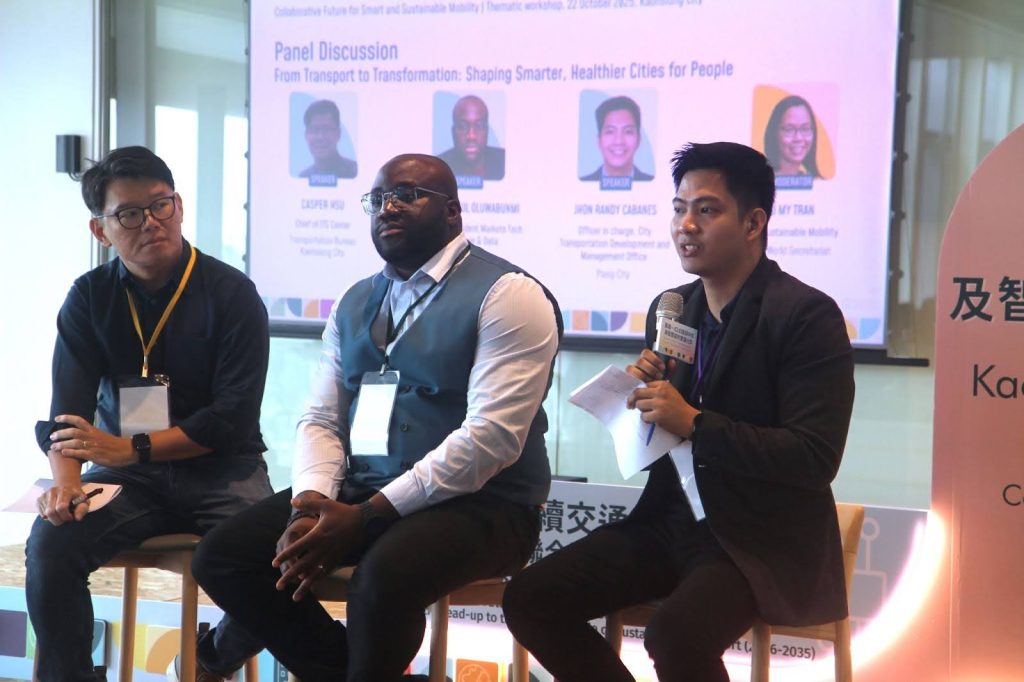
(from left to right) Casper Hsu (Kaohsiung City), Paul Oluwabunmi (OPEC Fund for International Development), and Jhon Randy Cabanes (Pasig City) engage in a panel discussion regarding the key role of mobility in shaping smarter and healthier cities for the people.
A succeeding panel discussion also featured Jhon Randy Cabanes of the Pasig City Transportation Development and Management Office, Paul Oluwabunmi from OPEC Fund for International Development, and Casper Hsu from the Kaohsiung City Government.
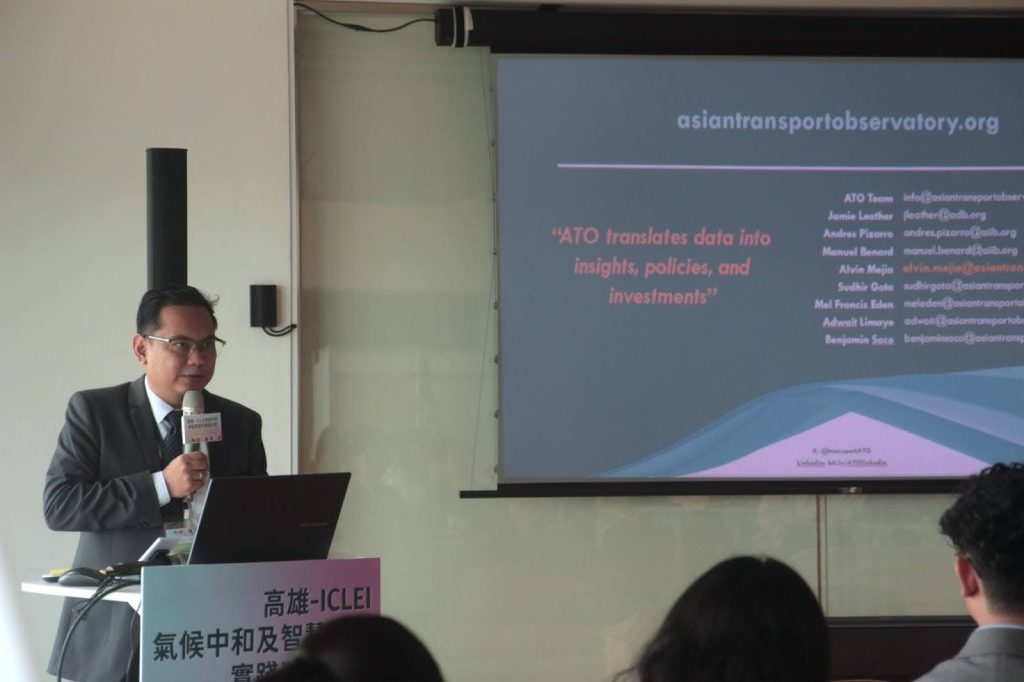
Alvin Mejia of the Asian Development Bank (ADB) Asian Transport Observatory (ATO) presents the transport outlook for Asia-Pacific.
The presentations and discussions highlighted the major gap in local transportation-related data in many Asia-Pacific cities, as well as the financing gap hindering cities from investing in their own sustainable mobility systems. Specifically, Mejia highlighted a staggering $44 trillion investment shortfall in sustainable transport over the past year.
Panelists and speakers emphasized the potential of technology, including artificial intelligence, to collect and analyze transportation data, while stressing that political commitment is essential for advancing local sustainable mobility. Discussions also focused on ensuring project bankability, exploring innovative financing mechanisms, and keeping people’s well-being at the center of urban mobility planning.
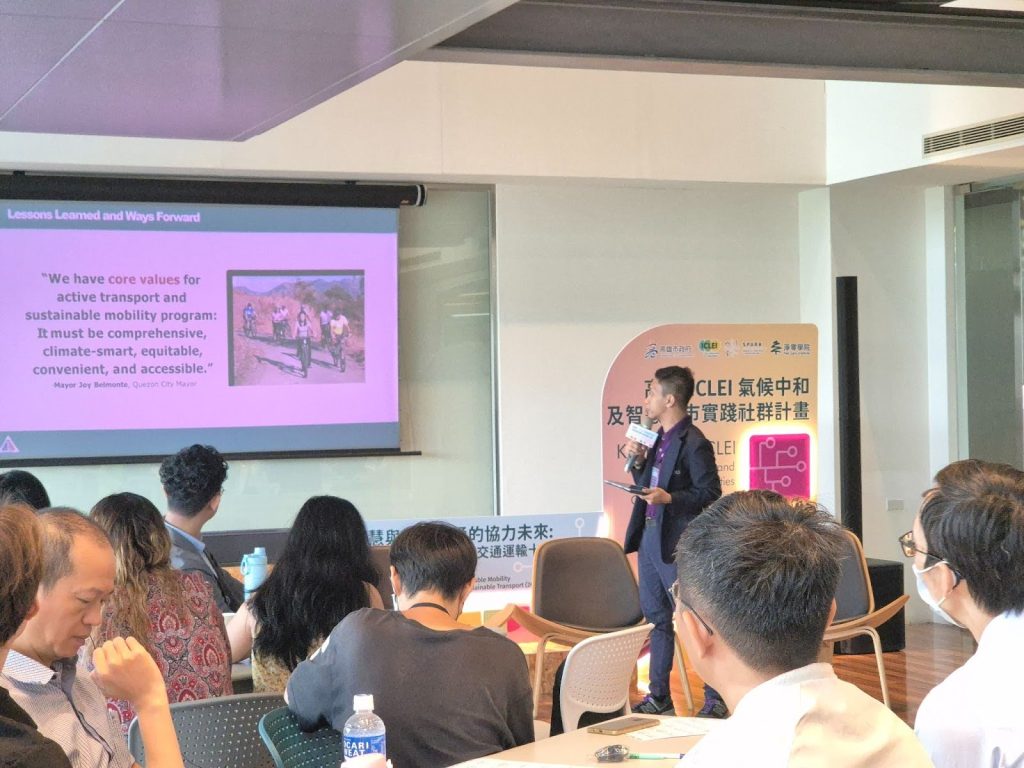
Allan Saleh de Vera from the Quezon City Planning and Development Department presents the sustainable mobility initiatives of the city, aligned with the mayor’s development agenda.
The SPARK Project in the Philippines was cited as a case study of active mobility, demonstrating the use of tactical urbanism and open data to promote active, people-centered transport solutions.
Participants then engaged in scenario-building exercises to envision urban mobility in 2050 under different climate scenarios. Many groups noted that a business-as-usual trajectory could deepen existing vulnerabilities and inequalities in Asia-Pacific cities, underscoring the urgency of pursuing sustainable, equitable mobility solutions.

ICLEI Kaohsiung Capacity Center Director Yisheng Yang (center, front-facing) engages with participants from the SPARK Delegation and the Kaohsiung Government.
The second day of the workshop spotlighted innovative financing strategies for development initiatives, featuring presentations from Ray Chen of the Taiwan Impact Investing Association, Aadit Devanand of Save the Children, Rola Nasserdine of Springs Global Consultancy, and Paul Oluwabunmi of Citi Group.
Following the presentations, participants took part in a hands-on session led by Jaume Marques Colom, Senior Officer of ICLEI’s Innovative Finance team, where they developed financing storyboards for proposed projects. The exercise included identifying specific funding mechanisms and de-risking instruments, with participants receiving feedback from both peers and experts to refine their proposals.
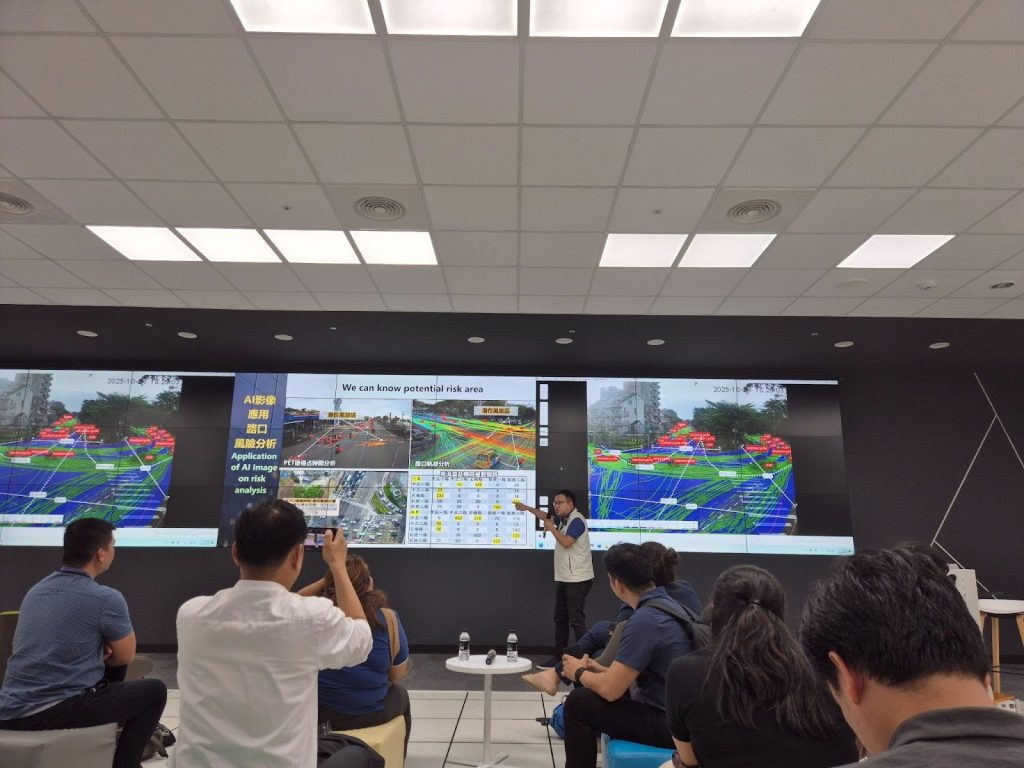
Ching-Ming Wong, Senior Specialist at the Transport Bureau of the Kaohsiung City Government, showcases how their office is harnessing the power of artificial intelligence (AI) to continuously monitor and improve Kaohsiung’s mobility system as part of the city’s “smart” initiatives.
The workshop also saw guided tours of the Kaohsiung Intelligent Transport Center, railway system, and bicycle-sharing system through the YouBike platform.
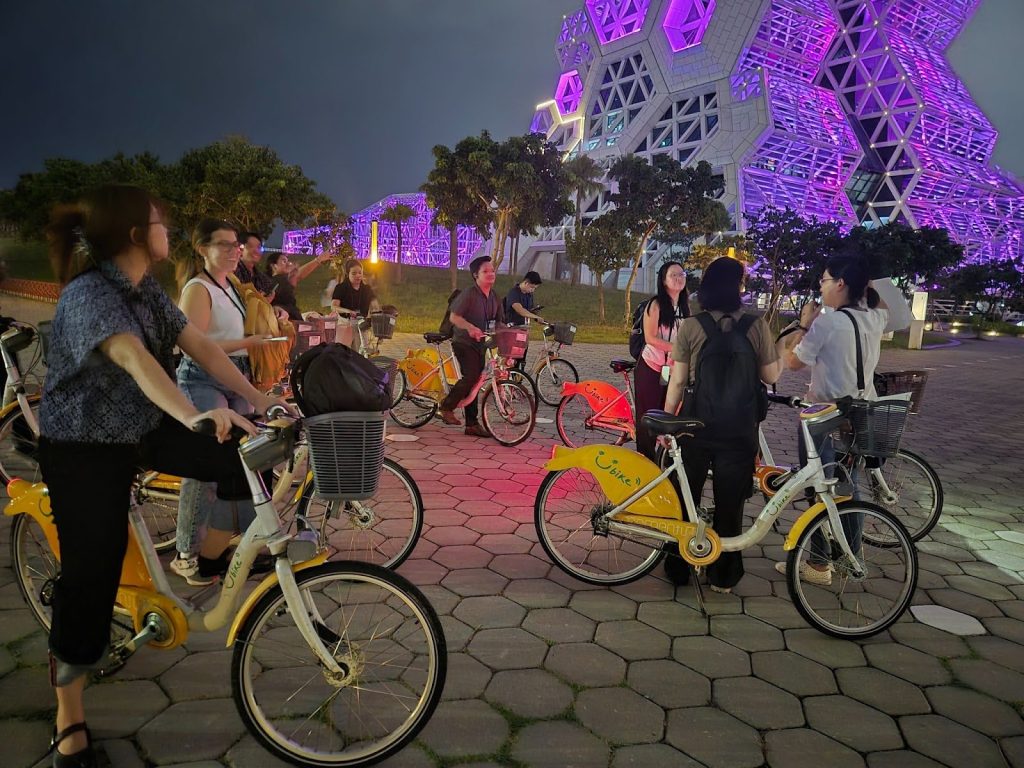
SPARK project delegates from Quezon City, Pasig City, and the Philippine Department of Transportation traverse the scenic bicycle route along the Love River from the Kaohsiung Pier 2 to the Kaohsiung Main Station in a guided tour with Shally Hsu, Head of Transportation Bureau, Kaohsiung City Government.
Philippine national government agencies Department of Transportation (DOTr) and Department of Human Settlements and Urban Development (DHSUD) were also represented during the event.
The workshop is part of KCC’s ongoing efforts to build a global community of practice for ICLEI members, connecting cities across the region through thematic workshops and collaborative learning.

